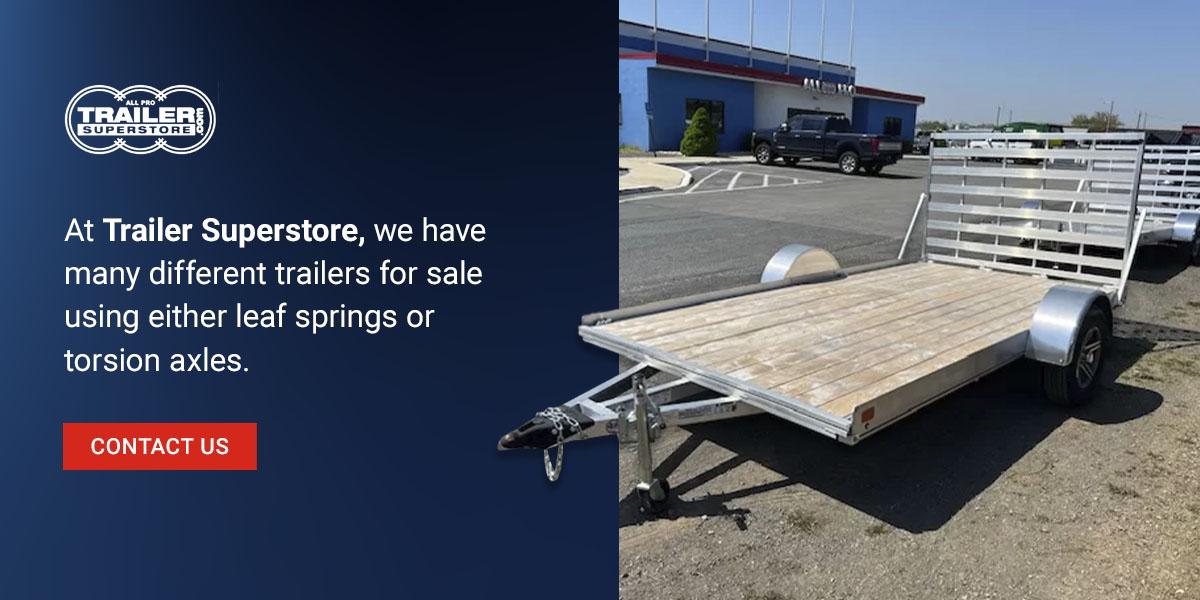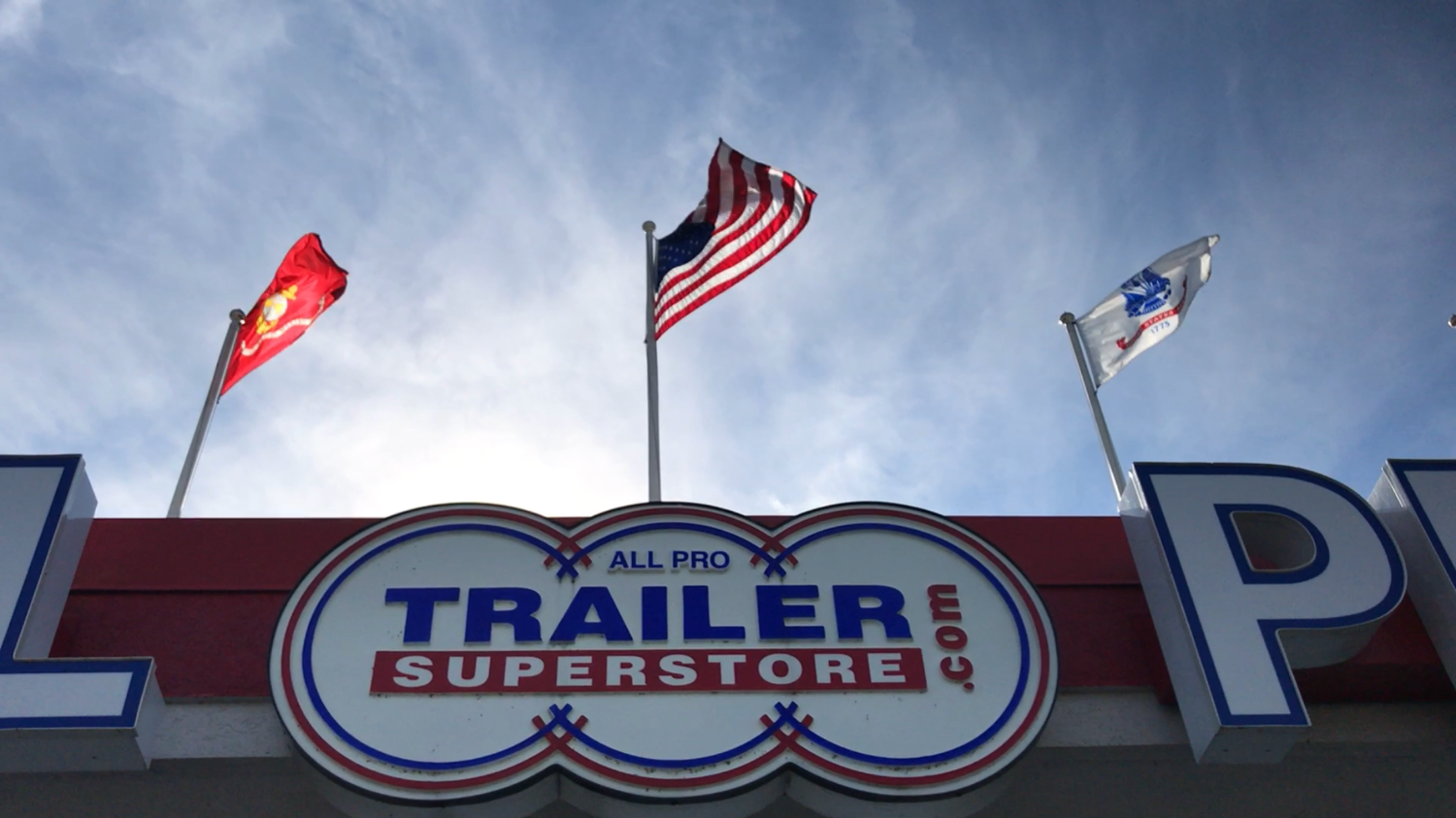Torsion Axles vs. Leaf Springs
Nov 13, 2015Last Updated on September 12, 2024 by Scott Miller
Last Updated on September 12, 2024 by allprotrailersuperstore
Trailers come in all shapes and sizes and are built with unique components designed to provide safe, efficient performance. The suspension system is an important part of any trailer, playing a direct role in the comfort and safety of your hauling experience. This system may use numerous design elements to accomplish that goal, with leaf springs and torsion axles being the most popular options on the market.
At All Pro Trailer Superstore, we’ve compiled all the information you need to know about the two common types of suspension for general-duty trailer axles. Read on to learn about leaf springs and torsion axles, which both have unique advantages and some disadvantages when compared side by side.
How Does a Torsion Axle Work?
Torsion axles are suspension systems used in many different types of small to medium-sized trailers. They’re built with a hollow, steel tube housing rubber cords. These tubes are connected directly to the frame and act independently with each wheel. As the wheels travel over bumps, these cords twist and flex to absorb shock and minimize the vibration.
Advantages of Torsion Axles
While torsion axles are generally more expensive to install and don’t distribute load as efficiently as leaf springs, they offer exclusive advantages worth considering before making your decision. Here are some of the advantages you could expect:
- Minimal maintenance: Since torsion axles use fewer working components, you can count on long-lasting performance without routine maintenance.
- Low risk of corrosion: Torsion axles use galvanized steel materials and involve no metal-to-metal contact on the inside, minimizing the likelihood of rust buildup or corroding parts.
- Premium riding experience: This type of axle yields a smoother ride and improves handling and cornering when hauling lighter loads due to its low ride height and center of gravity.
What Is a Leaf Spring?
A leaf spring is a common suspension system used in many vehicles and trailers. It’s built with a series of curved metal strips that are stacked and bolted together. These springs prevent the trailer from buckling when carrying weight, align the wheels, and maintain a balanced ride height when traveling over rough or uneven terrain.
Benefits of Using Leaf Springs
Leaf springs have long been the go-to axle type for haulers, as manufacturers have considered them one of the most reliable options for centuries. Despite requiring more maintenance due to their susceptibility to wear and tear, especially in colder environments, all types of leaf springs provide users with numerous benefits:
- Affordability: One of the biggest advantages of leaf springs is their cost-effectiveness due to their simple design, economical production costs and repairability.
- Versatility: Leaf springs are stronger and heavier than other options, enabling them to carry larger loads on various terrain types, including rough off-road areas as well as highways.
- Reliable performance: High-quality leaf springs will add weight to your ride, but this increase in weight creates an unrivaled sturdiness that increases the wheel’s contact with the ground to improve traction.
What Suspension System Should You Choose?
Whether you need an enclosed trailer to haul equipment or an open deck to transport vintage cars, choosing the right suspension system is crucial to your success. Neither option is perfect for every application, so you should evaluate your needs to determine which one is right for you.
At Trailer Superstore, we have many different trailers for sale using either leaf springs or torsion axles. Our team is always available to discuss your needs to ensure you get the right model for the job. Contact us online today to learn more about our trailers.



